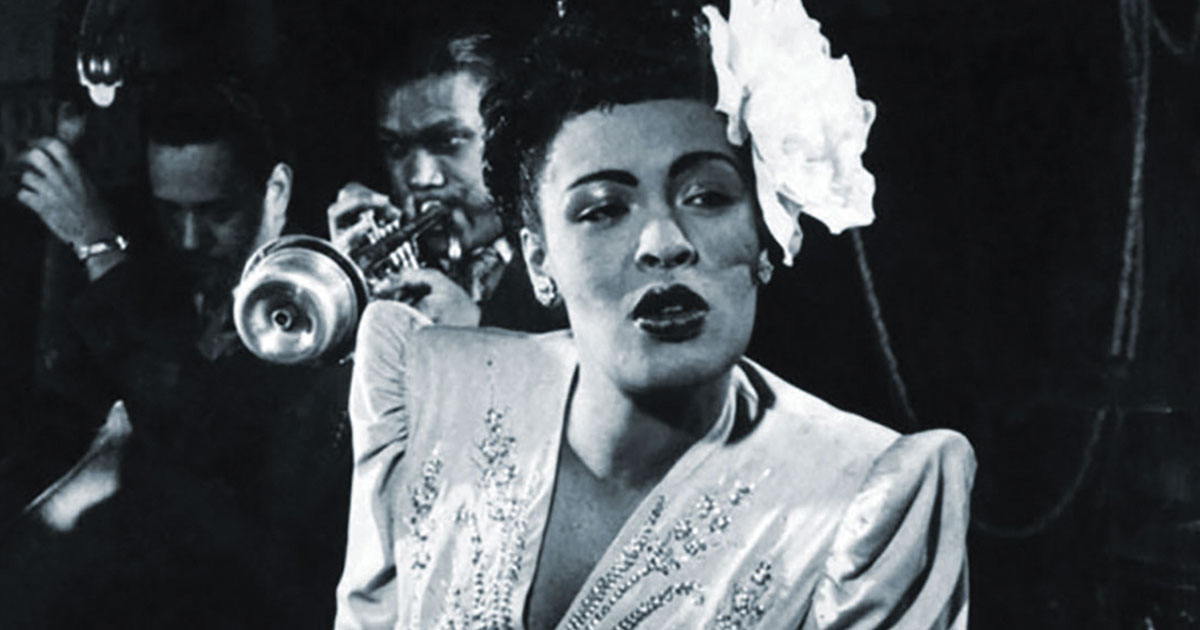“Shoo-bop-de-bop!” Do you hear that? A lot of us might consider jazz music to be “old” music. Well, it is old music! But it’s also modern and eternal, forever changing with the times. Classic jazz was created and maintained primarily by African Americans, but it’s global enough so that anyone can vibe to it. Let’s celebrate National Jazz Month by looking at some of the most influential women pioneers in jazz music. Get ready to scat!
ELLA FITZGERALD
She is known as one of the most influential jazz singers of our time. A trendsetter, Ella Fitzgerald made her singing debut at only 17 years old! It was a chilly November night in 1934 Harlem. After winning audiences over in just a week at the Apollo Theater, Fitzgerald earned the opportunity to compete in “Amateur Nights.” Although she went in with the initial intent to dance on stage, she felt quite intimidated by a competitive local dance duo, so she chose to sing instead. When she debuted her beautiful, husky vocals to the Harlem audience, everyone was captivated, and Ella walked away with the first prize award of twenty-five dollars!
That following year, Fitzgerald began performing with the Tiny Bradshaw Band at the Harlem Opera House. She met bandleader Chick Webb, and recorded multiple hit songs with them. She didn’t get public acclaim until she performed nursery rhyme, “A-Tisket, A-Tasket.” Fitzgerald took over as bandleader after Chick Webb passed.
Now, we all know Ms. Fitzgerald is known for scatting, making one’s voice sound rhythmically like jazz music. As the Swing era was dwindling down, a major change in jazz music was approaching. The bebop was making a tsunami wave across jazz music, and Ella flowed with it effortlessly. “I just tried to do [with my voice] what I heard the horns in the band[s] doing.” So, her voice became the saxophone, it became the trumpet, and it became the piano—and audiences everywhere were blown away
She lived a very successful life. Her talent drover her to film, commercials, television shows, and she even took home thirteen Grammy Awards in 1967. She passed away in 1996 at 79 years young in Beverly Hills, California. Known as the First Lady of Song, the Queen of Jazz, and Lady Ella, Ms. Fitzgerald continues to influence even current and uprising Jazz singers.
BILLIE HOLIDAY
Known as Lady Day, Billie Holiday always said, “I have to change a tune to my own way of doing it…that’s all I know.” She said that about making music and with the tumultuous life she had, she definitely knew how to make it her own. Born Eleanora Fagan, Holiday spent most of her childhood in Baltimore, Maryland. Her father, believed to be Clarence Holiday, was a successful jazz musician as well. But sadly, Billie never had her father around that much during her childhood. After her mother remarried another man and divorced a second time, she and Billie had to struggle on their own for a long time. It got so bad that Billie was left in the care of others on some days.
Through it all, Holiday found comfort in music. She would sing along with records of Bessie Smith, another black jazz musician. When she got older (in her later teens) and after moving to Harlem, New York, Holiday began to sing out in local nightclubs. She would then change her name from Eleanora to “Billie,” after classic film star Billie Dove. 18-year-old Billie was soon discovered by music producer, John Hammond, while performing at a Harlem jazz club. Hammond soon helped Holiday get recording work done with popular bands at the time. She ended up producing hits such as “Your Mother’s Son-In-Law” and “Riffin’ the Scotch.” She soon became a mainstream success.
But, unfortunately, because of her difficult early life, Holiday would fall into drug abuse and alcohol. She got into legal trouble and even served a short prison sentence. She never recovered from these issues, which tainted her reputation. She undoubtedly lived a very sad life, yet gave us beautiful, poignant music such as “What a Little Moonlight Can Do,” “Easy Living,” and “Good Morning, Heartache.”
Music is perpetual, and what makes it eternal is what a musician puts behind it—the soul, passion, and rhythm combined.





















